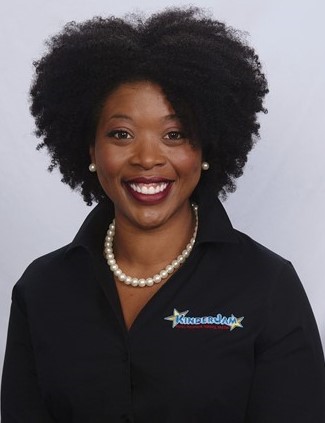
In our previous discussion about the levels of awareness for parents of young children with disabilities, we explored the ostrich phase – a time when a parent has a lack of awareness about disabilities and may not recognize the characteristics of a disability displayed by their child.
Today, we are going to explore and discuss a parent’s second level of awareness – Special Designation. As a parent of a child with disabilities, I like to think of Special Designation as the “Aha Phase.” In this second stage of awareness, parents have, through some transformational experience, recognized that their child indeed has a disability and will require additional assistance from a service provider to maximize his or her personal potential. This transformational experience may come in the form of a quiet realization. Or, a question is asked by a teacher, trusted friend, or family member, such as, “Johnny isn’t talking yet. What do you think about that?”
During this phase, the parent may begin seeking guidance from service providers. “Sally is not walking yet and she is almost two. Her sister started walking before she was one. I’m worried. What should I do?” The parent’s rationale during Special Designation is if there is a “problem” with my child’s development, then surely there are professionals who can fix this problem. At this time in the parent’s journey, the parent is looking for support from a more knowledgeable other in the area of disabilities.
That more knowledgeable other is you.
My Experience in Special Designation
Let me share with you my own experience in Special Designation as a new parent of a child with disabilities.
In 2008, I found myself home alone with my 17-month son. My husband was deployed to Iraq and I busied myself caring for our son in his absence. Early during the deployment, I had experienced what would be my third and final miscarriage. After the miscarriage, I chose to stay home with my baby and try to process the sorrow I was feeling. Therefore, I didn’t engage with friends and neighbors for playdates and outings. My son and I had always been extremely social. Since he was four weeks old, we attended Parent and Me classes, enjoyed daily outings with friends, and went on weekend excursions with Dad. Language was all around us. People were always talking. I was always talking. I was always narrating for him. So, in my mind, he was talking, too. We had an intuitive language, Therefore, without realizing it, I compensated for the words my son never spoke.
However, with the absence of people and talking around us, I began to notice something that I had not fully acknowledged before. My son wasn’t talking. If I wasn’t talking, there was complete silence. There was absolutely no conversation in the house. None at all. I talked, and my baby listened, at least I thought he was listening. But I knew for certain, he wasn’t making any attempts to speak to me. This was my single greatest “Aha” moment as a parent of child with disabilities and the catalyst for action.
Unsure of what to do or how I felt about my son’s lack of language, I made an appointment with my son’s pediatrician. When I took him to the doctor, I said, “My son’s not speaking. He has a couple of words that he says, like ‘hi,’ ‘bye,’ and ‘touchdown,’ but he’s not making any attempts to communicate with me.” The pediatrician examined my son—healthy eyes, ears, and heart. The pediatrician then said to me, “Children develop at different rates. Just keep doing what you’re doing, mom—you’re doing a great job.” Then he gave us a sticker.
I was devastated. Do you know how much strength it took for me to make that appointment, ask for help, and say out loud to someone that I think there is something going on with my child that I don’t know how to fix?
A lot.
Fortunately, I had the skill set and agency to advocate for my son and his needs immediately and I didn’t stop until I found service providers who could best support my child and his needs.
What You Can Do
However, parents come to service providers from different pathways. It is essential as service providers take the time to listen to parents so that every parent has the opportunity to share the details of their concerns. And while a disability cannot be “fixed”, you can assure parents that you are here to walk with them through this journey and together you, with the family’s input, will figure out a way forward.
Special Designation is a step forward as the parent is actively looking for help. Consequently, this phase requires patience and a listening ear from service providers as the parent processes the realization that their most precious child has a disability. Special Designation is a turning point that parents reach before the family begins to establish their “new normal” as a family of a child with disabilities.
As an early interventionist, you are in an opportune position to work with parents during the Special Designation phase as you empower and equip parents with useful skills and strategies that will enable them to best assist the continued development of their young child with disabilities.
Have you ever encountered a parent who had the expectation for you to “fix” their child?
Given the new knowledge you have about Special Designation, how would you respond to that parent now?
Be sure to read the other posts in this series:
Emerging Parenthood: Trust the Process – Don’t Rush the Process
Levels of Awareness: The Ostrich Phase
Normalization – The Hope Phase
Self-Actualization: Hello, I am the Parent of a Child with Disabilities
Check out El’s archived webinar too: Mama Bear: Using Parent Narratives and Experience to Improve Engagement Practices

El is an educator, entrepreneur, author, and PhD student specializing in Early Childhood Education/Early Childhood Special Education at George Mason University. Prior to leaving the traditional classroom, El served as an Elementary and Early Childhood Educator in the United States, Japan, and South Korea. She is the founder of KinderJam, an Early Childhood Education care, enrichment, and training agency. Above all, El is the proud mother of an 11-year-old son on the autism spectrum, affectionately known as SuperDuperKid (SDK). El can be reached at elbrown@kinderjam.com



El: Your voice and your story are so powerful! Thank you for sharing with us.